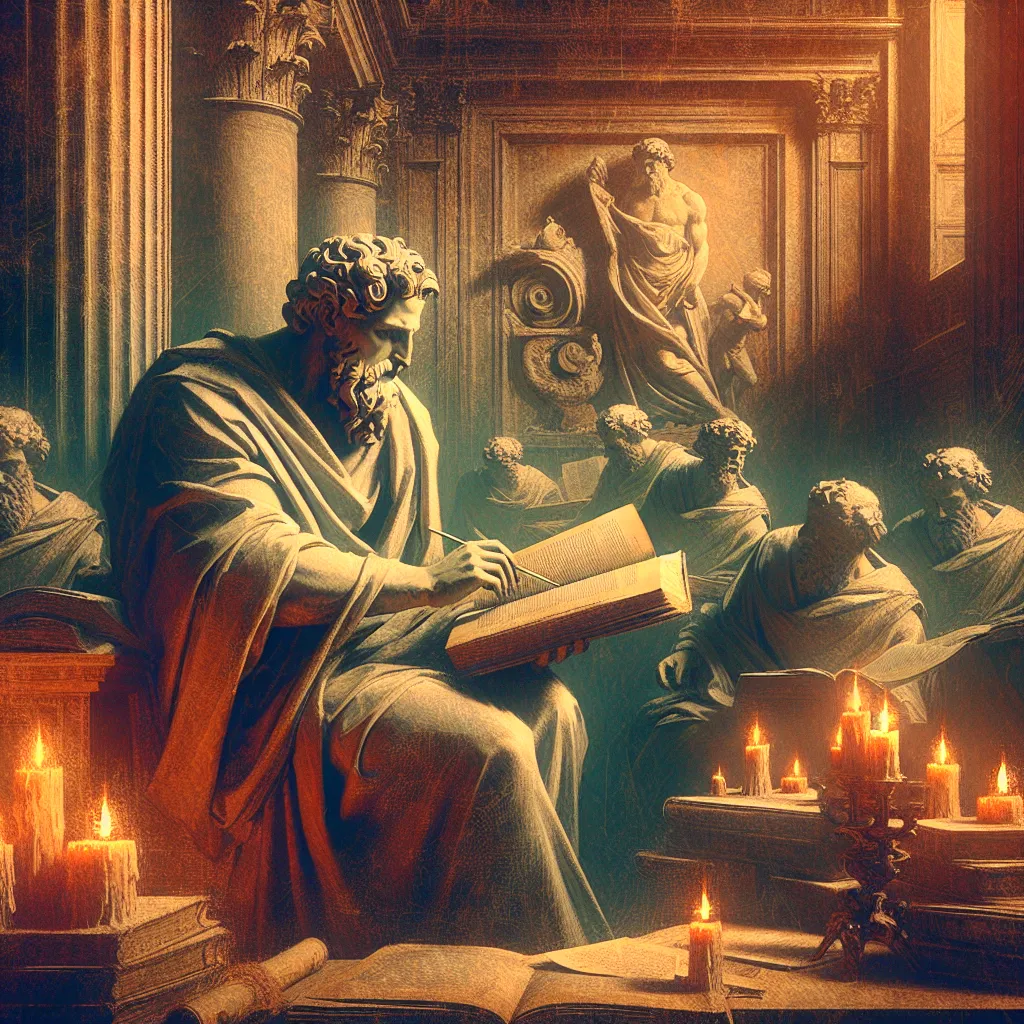
- Published on
- Authors

- Name
- You
The Origins of Gnosticism
Introduction
Gnosticism, a term derived from the Greek word gnosis meaning "knowledge," is a mystical and esoteric movement that emerged in the early centuries of the Common Era. This spiritual tradition encompasses a rich tapestry of beliefs and practices that focus on the direct experiential knowledge of the divine. Join me on an enlightening journey as we explore the historical roots, key figures, and core doctrines that shaped Gnosticism.
Historical Roots
The genesis of Gnosticism is a complex and multifaceted story that cannot be pinpointed to a single origin. Instead, it is the confluence of various religious, cultural, and philosophical currents that intertwined and evolved over centuries.
| Timeline | Event/Influence |
|---|---|
| 1st Century BCE | Hellenistic influences infuse Jewish thought. |
| 1st Century CE | Mystery religions flourish in the Roman Empire. |
| 2nd Century CE | Gnostic texts and communities proliferate. |
| 4th Century CE | Codexes like the Nag Hammadi library discovered. |
Hellenistic and Jewish Influences
Gnosticism emerged within the rich spiritual milieu of the ancient world, particularly the Hellenistic period. The synthesis of Greek philosophy, especially Platonism, with Jewish mystical traditions, laid the groundwork for Gnostic thought. Of particular influence were the dualistic worldviews of Plato, which posited a material world and a higher spiritual realm.
Early Christian Context
In the early centuries of the Common Era, Christianity itself was in a state of flux and diversification. Gnostic ideas often intertwined with burgeoning Christian theology, leading to the creation of various Gnostic Christian sects. Prominent among these were the Sethians and Valentinians, who viewed the material world as a flawed creation constrained by a lesser divine being, often identified as the Demiurge.
Core Doctrines of Gnosticism
The Divine Spark
At the heart of Gnostic belief is the concept of the divine spark within each individual, a fragment of the true God that lies dormant within the human soul, yearning for liberation. This concept parallels the quantum principle that consciousness is a fundamental aspect of the universe.
The Demiurge
Gnostics posited that the physical world was created by an inferior, ignorant deity known as the Demiurge. This being, while possessing the power to shape the material realm, lacked true knowledge of the higher, transcendent God. The Demiurge is akin to a programmer within a simulation, crafting a flawed and imperfect virtual reality.
Salvific Knowledge
Unlike orthodox religions that emphasize faith or works, Gnostic salvation hinges on gnosis—esoteric, experiential knowledge that awakens the divine spark within. This awakening can be likened to a quantum leap of consciousness, where an individual transcends the limitations of the material world and ascends to higher planes of existence.
Key Figures and Texts
| Figure | Contribution |
|---|---|
| Valentinus | Founded the Valentinian school with sophisticated cosmology. |
| Basilides | Advocated for a detailed Gnostic creation myth. |
| Nag Hammadi Library | A treasure trove of Gnostic texts such as the Gospel of Thomas. |
Valentinus
Valentinus, one of the most prominent Gnostic thinkers, developed a complex system of metaphysical and theological ideas that profoundly influenced Gnostic Christianity. His teachings emphasized the importance of inner spiritual knowledge and the role of mystics as mediators between the divine realms and humanity.
Nag Hammadi Library
Discovered in 1945, the Nag Hammadi Library is a collection of Gnostic texts that has been indispensable in understanding early Gnostic thought. These texts, including the Gospel of Thomas and the Apocryphon of John, reveal the depth and diversity of Gnostic spiritual traditions.
Conclusion
Gnosticism remains an enigmatic and often misunderstood spiritual tradition, blending elements of ancient philosophy, early Christian mysticism, and esoteric wisdom. Its emphasis on direct, experiential knowledge echoes through time, resonating with both ancient seekers and modern spiritual practitioners.
In the dance between mysticism and science, between the psychedelic and the quantum mechanical, Gnosticism offers an intricate tapestry. It invites us to look beyond the surface, to peer into the hidden realms of the soul, and to awaken the divine spark within each of us.
May this exploration inspire your journey towards gnosis, illuminating the path to higher understanding and spiritual awakening.
Follow Your Quest For Knowledge:
Be sure to subscribe to our newsletter for more incredible articles that meld the mystical with the scientific, and keep your soul and mind enthralled!
